The views expressed in our content reflect individual perspectives and do not represent the authoritative views of the Baha'i Faith.
During his travels to North America, Europe, and North Africa in the early part of the 20th century, Abdu’l-Baha was often revered as a Christ-like figure, as the East’s wisest spiritual teacher. Why?
As Adib Masumian’s new book Abdu’l-Baha in Europe 1912-1913 explains, the respect and veneration Abdu’l-Baha received, spanning the spectrum from poor homeless people to captains of industry to political and religious leaders, reflects not only his universal appeal but the love he clearly felt for all humanity. In our interview with the author, BahaiTeachings.org asked about this phenomenon:
David Langness: Your new book paints a picture of Abdu’l-Baha as one greatly venerated and respected by cultural, religious, and political leaders — even those whose institutions opposed the Faith in the recent past. What, in your view, caused such veneration?
Adib Masumian: That’s mostly true, but to lend a bit of nuance to what was going on, I want to note that some people seem to have felt threatened by Abdu’l-Baha’s presence.
According to Abdu’l-Baha’s traveling companion Mahmud Zarqani, whose diary the book is based on, the owner of the Edinburgh Evening Dispatch once wrote, “If our ministers have so quickly lauded the glory and perfection of an Easterner, what will become of the rest of us?”
RELATED: How Did the Baha’i Faith Spread Around the World?
Mahmud then remarked that this sentiment was justified, given the reverent reception Abdu’l-Baha was consistently accorded regardless of where and to whom he spoke. He also points out how quickly Abdu’l-Baha was making an impression this profound: just three days after his arrival in Scotland. Mahmud concludes his train of thought with these reflections:
Every day, the newspapers describe the greatness of [Abdu’l-Baha’s] glory and the transcendence of His perfection — though, to be sure, some of them speak jealously of Him and succumb to fear. They warn their readers to be wary of embracing this [Baha’i] Cause, lest it shake the pillars of their so-called independence and deal a blow to the foundation of their blind imitation.
But yes, for the most part, Abdu’l-Baha was received very positively by people of various backgrounds. I suspect this was because he perfectly embodied the lofty ideals he was propounding — ideals that probably appealed to a wide audience since they seemed to have captured the spirit of the age.
Authenticity is a universally appreciated attribute. People like to see someone who practices what they preach, and Abdu’l-Baha did this to a consummate degree. To his audiences, he represented the quintessential example of nobility and high-mindedness. I imagine those perceptive Christian ministers who asked him to speak to their congregations and praised him so effusively discerned, in his message, the same love, kindness, and spiritual principles we find in Christianity. They may have even seen him as a Christlike figure. That was an impression he seemed to have made on people naturally and effortlessly.
Mahmud Zarqani writes that, on the last day of their voyage from America to England, someone actually asked Abdu’l-Baha if he was the Messiah. In response, he simply said, “I am a servant of God.”
Where the political leaders are concerned, I think part of their veneration for Abdu’l-Baha stemmed from the fact that they were now interacting on equal footing, where his greatness could be clearly demonstrated, and also from his astonishingly kind treatment of those leaders.
As an example, let’s take Rashid Pasha, the former governor of Beirut and a man whom Mahmud Zarqani describes as a previously “inveterate opponent of the [Baha’i] Cause.” When Abdu’l-Baha was still a prisoner and a subject of the Ottoman Empire, Rashid Pasha was in a position of authority over him — but when the two of them met in France after Abdu’l-Baha had gained his freedom, the circumstances of the past no longer applied. They were now in neutral territory, and it was here that Abdu’l-Baha could show his gracious forbearance toward Rashid Pasha by “showering him with loving-kindness” (to quote Mahmud) in spite of all the hardship he had caused for the Baha’is in those earlier years.
RELATED: How to Live an Exemplary Baha’i Life
What was the result of Abdu’l-Baha’s magnanimous conduct? Mahmud writes that, during that first meeting in France, Rashid Pasha exhibited an ever-increasing degree of humility and reverence in the presence of Abdu’l-Baha, and that he eventually went so far as to bow down before him. It is in situations like this where we see Abdu’l-Baha exemplifying his own counsel:
In every instance let the friends be considerate and infinitely kind. Let them never be defeated by the malice of the people, by their aggression and their hate, no matter how intense. If others hurl their darts against you, offer them milk and honey in return; if they poison your lives, sweeten their souls; if they injure you, teach them how to be comforted; if they inflict a wound upon you, be a balm to their sores; if they sting you, hold to their lips a refreshing cup.
David: Thanks so much, Adib, for your diligence and deep devotion to this wonderful project!
Adib Masumian’s new translation of the second volume of Mahmud’s Diary, titled Abdu’l-Baha in Europe 1912-1913, is now available from George Ronald: www.grbooks.com


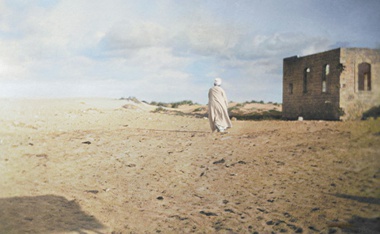


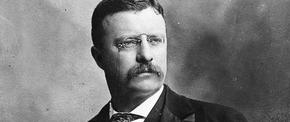
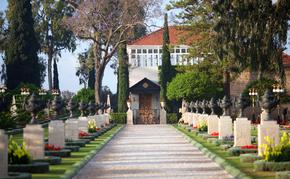
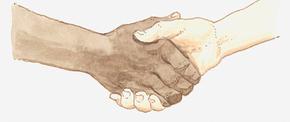





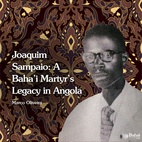
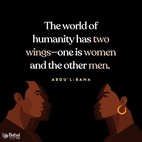
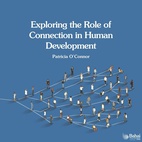


Comments
Sign in or create an account
Continue with Googleor